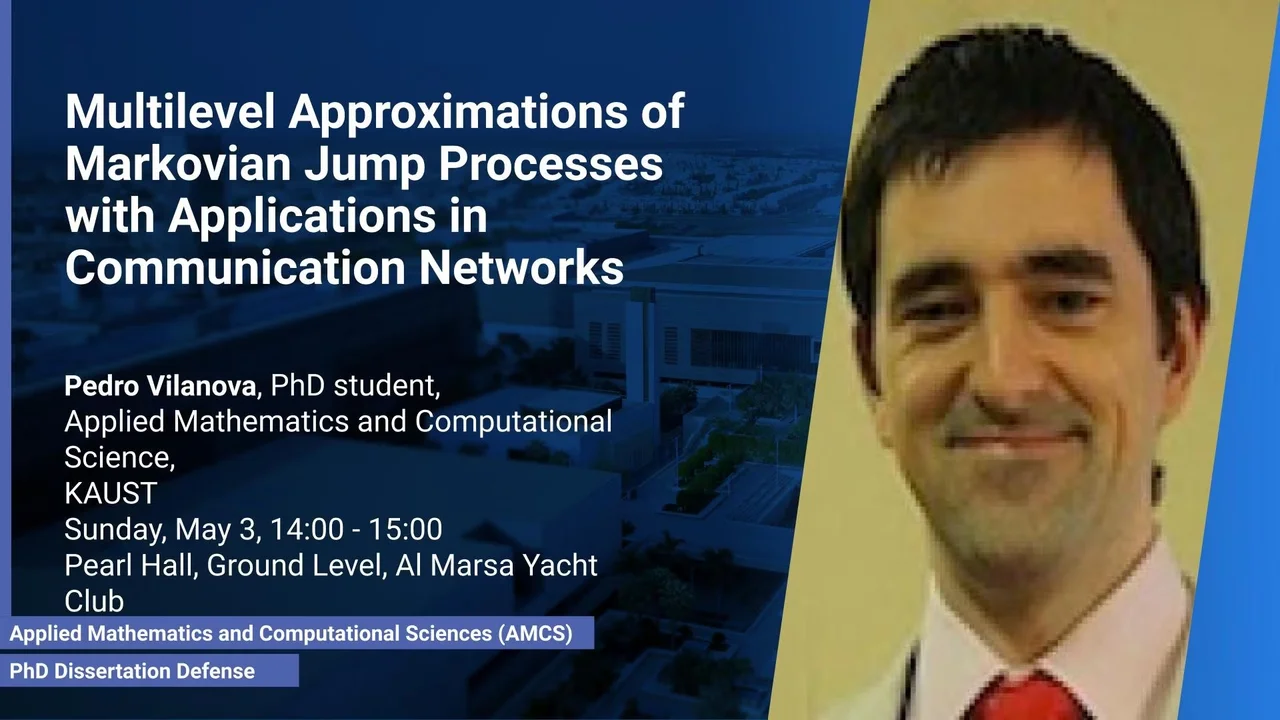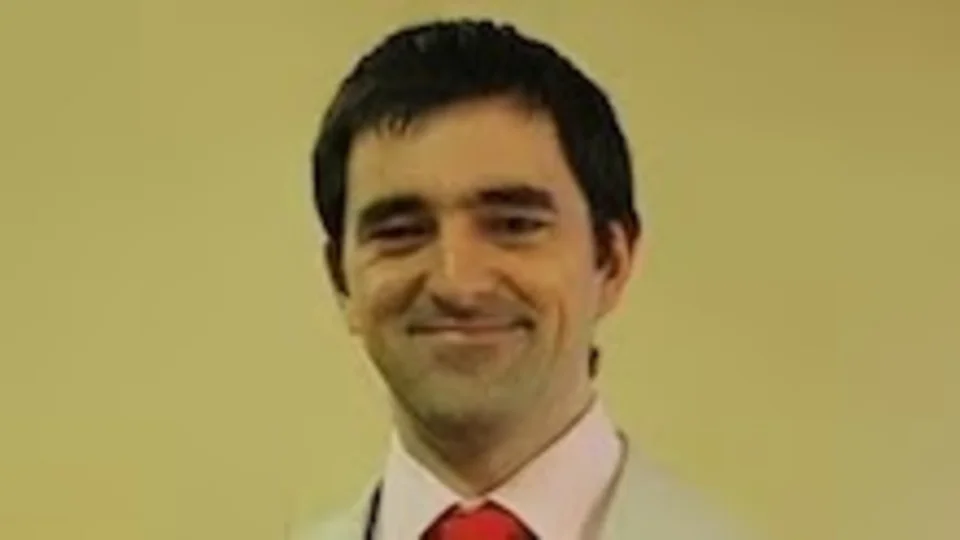
Multilevel Approximations of Markovian Jump Processes with Applications in Communication Networks By Pedro Vilanova (PhD Student of Prof. Raul Tempone, KAUST)
This thesis focuses on the development and analysis of efficient simulation and inference techniques for Markovian pure jump processes with a view towards applications in dense communication networks. The first part of this work proposes novel numerical methods to estimate, in an efficient and accurate way, observables from realizations of Markovian jump processes.
Overview
Abstract
This thesis focuses on the development and analysis of efficient simulation and inference techniques for Markovian pure jump processes with a view towards applications in dense communication networks. The first part of this work proposes novel numerical methods to estimate, in an efficient and accurate way, observables from realizations of Markovian jump processes. In particular, hybrid Monte Carlo type methods are developed that combine the exact and approximate simulation algorithms to exploit their respective advantages. These methods are tailored to keep a global computational error below a prescribed global error tolerance and within a given statistical confidence level. Indeed, the computational work of these methods is similar to the one of an exact method, but with a smaller constant. Finally, the methods are extended to systems with a disparity of time scales. The second part develops novel inference methods to estimate the parameters of Markovian pure jump process. First, an indirect inference approach is presented, which is based on upscaled representations and does not require sampling. This method is simpler than dealing directly with the likelihood of the process, which, in general, cannot be expressed in closed form and whose maximization requires computationally intensive sampling techniques. Second, a forward-reverse Monte Carlo Expectation-Maximization algorithm is provided to approximate a local maximum or saddle point of the likelihood function of the parameters given a set of observations.
Brief Biography
Pedro Vilanova is a PhD Candidate in Applied Mathematics and Computational Science at KAUST working with Prof. Raúl Tempone. He is a member of the KAUST SRI-Center of Uncertainty Quantification and the KAUST Stochastic Numerics research group. He has been working on multilevel numerical modeling of Markovian stochastic dynamical systems, with applications to communication networks.
